Spanish 103 - Learn How to Form the Past Subjunctive in Spanish for Beginners Spanish With Profe
In this video you will learn how to form the past subjunctive. The past subjunctive is similar to the present subjunctive in which it has to happen on the subordinate clause, and it depends on verbs of will/want/emotion/non-existent or the WEDDING or WEIRDO category. WEDDING or WEIRDO.
WEDDING=W-stands for Wish/Want/Will, E for emotion, D for desire, doubt, denial, I for impersonal expressions, and G for God; and WEIRDO=W for Wish/Want/Will; E for emotions, I for impersonal expressions, D for denial/desire/doubt, and O for ojalá.
The subjunctive is a probability, something that might happen.
In the past subjunctive there are only regular verbs, irregular verbs, and stem-changing verbs in the -ir ending only (o=u; e=i)
You can use the following endings for regular -ar verbs. You will drop the -ar and substitute the following endings.
que yo -ara
que tú -aras
que él, ella, usted -ara
que nosotros/as -áramos
que ellos, ellas, ustedes -aran
Era necesario que ellos cantaran (cantar). (It was necessary for them to sing.)
Dudábamos que ella dibujara (dibujar) tan bien. (We doubted she drew well.)
You can use the following endings for regular -er/-ir verbs. You will drop the -er/-ir and substitute the following endings.
que yo -iera
que tú -ieras
que él, ella, usted -iera
que nosotros/as -iéramos
que ellos, ellas, ustedes -ieran
Era importante que ustedes bebieran (beber) más agua. (It was important for you all to drink more water.)
No creíamos que tú corrieras (correr) tanto. (We did not believe that you would run so much.)
Remember in the past there are only stem-changing in -ir only.
We will use the third person plural and add the endings.
dormir=durmieron drop "ieron" and substitute with new ending 'iera..."
Era necesario que yo durmiera (dormir).
NO era necesario que ellos sirvieran (servir). (It was not necessary for them to serve.)
For the irregular verbs, use their new root and add the endings of the -er/-ir
Some will have their own form as they do not follow a pattern.
Ser/Ir= fu + era= que yo fuera, ....
tener=tuv_
estar=estuv_
hacer=hic_
poner=pus_
poder=pud__
saber=sup_
querer=quis_
venir=vin_
dar=d_
ver=v_
que yo -iera
que tú -ieras
que él, ella, usted -iera
que nosotros/as -iéramos
que ellos, ellas, ustedes -ieran
for those that end in "j" you will add "era..." similar to the ser/ir as they do not have an "i" in the third person plural
decir=dij_
traer=traj_
producir=produj_
traducir=traduj_
Era necesario que ellos tradujeran(traducir) los documentos. (It was necessary for them to translate the documents.)
Para que ella trajera (traer) las cosas era necesario una grúa. (So that she could bring in everything it was necessary to hire a tow truck.)
Some Ways Below To Help Out The Channel Listed Below
► DONATIONS via PayPal (To help support the channel you can donate via PayPal): https://paypal.me/SpanishWithProfe?locale.x=en_US
► ROBINHOOD (Get 1 Stock When You Sign Up. Easy to use app for investing and you get a free stock.): https://join.robinhood.com/grants1730
► WEBULL (Get 2 Stock When You Sign Up):https://www.webull.com/activity/get-free-stocks?inviteCode=uYiu2aNdG46N&source=invite_gw&inviteSource=wb_oversea
► CRYPTO.COM Use my referral link https://crypto.com/app/e3p3g4rc9m to sign up for Crypto.com and we both get $25 USD :)
-
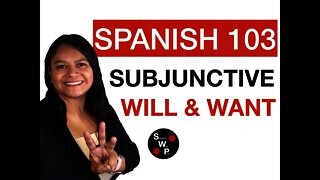 12:54
12:54
Spanish With Profe
2 years agoSpanish 103 - Spanish Present Subjunctive with Verbs of Will, Want WEIRDO Part 1 Spanish With Profe
988 -
 12:51
12:51
Spanish With Profe
2 years ago $0.01 earnedSpanish 103 - How to Form Haber in the Past Perfect in Spanish for Beginners Spanish With Profe
18311 -
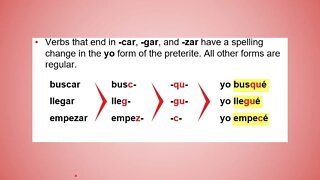 4:06
4:06
My Content
1 year agoLearn Spanish: The Preterite (A Past Tense)
1 -
 23:15
23:15
Lucasley
1 year agoThe MOST IMPORTANT tense in Spanish
3 -
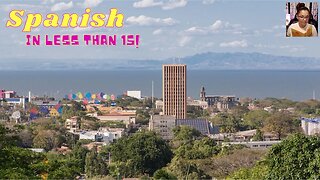 26:13
26:13
Lucasley
1 year ago $0.01 earnedHOW to Spanish in 15 minutes - Speak Spanish with Confidence - Lesson 37
43 -
 22:33
22:33
Lucasley
1 year agoHOW to Spanish in 15 minutes - Speak Spanish with Confidence - Lesson 36
35 -
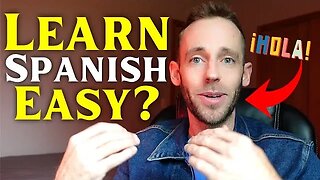 7:07
7:07
Nomad Lifestyle
2 years ago $0.03 earned8 Tips for Learning Spanish QUICKLY and FLUENTLY as a Beginner (Speak Spanish FAST, FREE, and EASY)
257 -
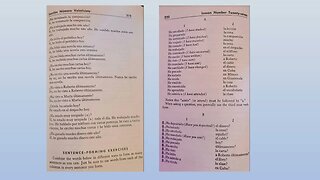 20:59
20:59
Lucasley
1 year ago $0.03 earnedHOW to Spanish in 15 minutes - Speak Spanish with Confidence - Lesson 34
1741 -
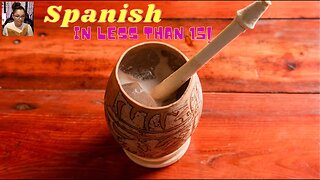 27:04
27:04
Lucasley
1 year agoHOW to Spanish in 15 minutes - Speak Spanish with Confidence - Lesson 35
32 -
 29:42
29:42
Free Spanish Lessons
1 year agoAmazing lesson - Learn HOW to use GUSTAR and the PRONOUNS correctly - Part 1
1421